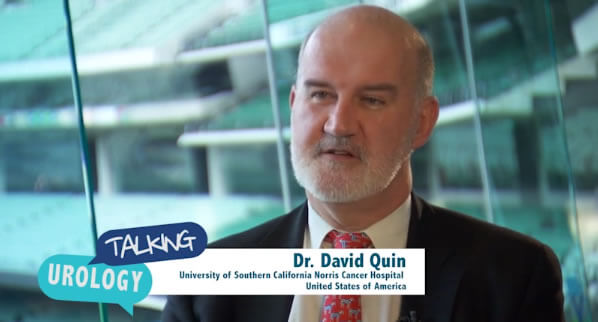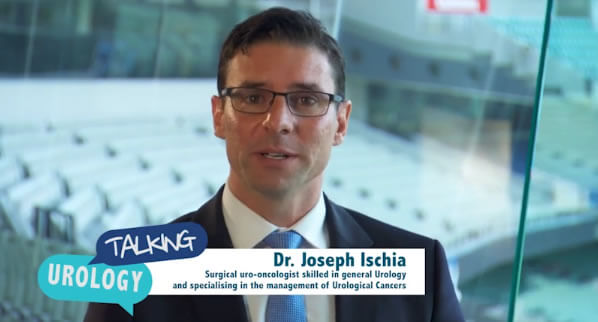USANZ 2017 – Dr Morgan Pokorny
Morgan Pokorny holds a VMO appointment at Redcliffe Hospital and consults at the Wesley Medical Centre in Brisbane.
Dr Morgan Pokorny discussed pelvic lymph node dissection for prostate cancer with Dr Joseph Ischia.
Talking Urology podcast transcript
USANZ 2017 Interviews – Morgan Pokorny
This is Talking Urology.
Joseph Ischia: I’m Talking Urology with Morgan Pokorny who is a uro-oncologist with a special interest in imaging techniques for prostate cancer. Morgan, you’re going to give us a little bit of an Australian insight into Stephen Boorjian’s excellent talk yesterday on the role of pelvic lymph node dissection in prostate cancer.
Dr. Morgan Pokorny: Yeah, good morning Joe. Thanks very much for the invitation to be here. Look, I thought on Stephen’s talk yesterday was excellent and provided a very thorough overview of the current status and I’m thinking around lymph node dissection and prostate cancer. He presented very recent data including a recent systematic review and in summary, I think the jury’s out around the world on whether there’s any oncological or curative benefit to lymph node dissection. But he did make the point that in their units and in their experience it provides important prognostic information and guides adjuvant therapy in the early setting. So, we’ve thought about this here in Australia and locally in Brisbane and we’ve analyzed a few figures over the last year and it’s quite interesting. If you look at Medicare data, more than 50% of men in Australia who are having a prostate removed, have lymph node dissection at the same time and I think the figures roughly 55% and when we’ve gone back and looked at our own histology in Brisbane of all the lymph node dissections done through our units about 4% were positive. So it means that over 90% of men are having a procedure that does them no good and potentially does harm. Of course, as your oncologist, we’re always concerned about under staging patients or perhaps not having provided the full chance of cure. So this makes the discussion quite difficult and that’s what Stephen covered yesterday. We’ve looked at our PSMA scanned data in Brisbane and of course when you have a positive node on PSMA that’s highly reliable and we’ve seen that from international studies. However, what hasn’t been published much is the false negative rate of PSMA scans. So, we’ve looked back at about 50 patients in the last six months and of those, 22% a false negative scan and several men had quite large lymph nodes up to 20 mm in diameter soon after surgery despite the primary tumor being positive. So what this means is that if you operate on men with a negative scan and don’t do a lymph node dissection you miss 20% of those men you actually had positive lymph nodes and then John Yaxley has gone and looked at some other data and found that if patients have just one positive lymph node the chance of long-term cure is about 10%. So if you take those two figures together roughly 2% of men with a negative PSMA scan might benefit from a pelvic lymph node dissection. So that’s our spin on the whole situation and I think we’re very fortunate Australia we’ve been early adopters of PSMA and high resolution MRI. So I think that’s helped us finesse our approach a bit more.
Joseph: Is there anything on the horizon that might be better than PSMA?
Morgan: Well Stephen alluded in his talk to lymphotropic nanoparticle MRI which was pioneered by Jelle Barentsz and colleagues and published in Nijmegen in 2003 with fantastic sensitivities and specificities of 93% to 96%. Their technology unfortunately disappeared from the market for over 10 years but Jelle has recently bought the license and the manufacturing rights and we’re very privileged to be able to be starting a trial later this year in conjunction with Jelle’s team in Holland and Phil Stricker’s team in Sydney to do a multi-center prospective trial looking at PSMA and Combidex or nanoparticle MRI staging for men prior to prostate surgery with planned pelvic lymph node dissection.
Joseph: So we can really get an idea of the sensitivity and specificity?
Morgan: Yeah.
Joseph: Fantastic work, Morgan. Thank you very much for being in today.
Morgan: All right. Thanks very much, Joe.










